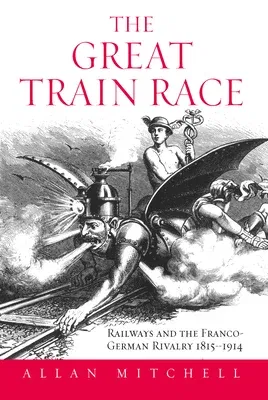Allan Mitchell
(Author)The Great Train Race: Railways and the Franco-German Rivalry, 1815-1914Paperback, 1 March 2006

Qty
1
Turbo
Ships in 2 - 3 days
In Stock
Free Delivery
Cash on Delivery
15 Days
Free Returns
Secure Checkout

Print Length
356 pages
Language
English
Publisher
Berghahn Books
Date Published
1 Mar 2006
ISBN-10
1845451368
ISBN-13
9781845451363
Description
Product Details
Author:
Book Format:
Paperback
Country of Origin:
US
Date Published:
1 March 2006
Dimensions:
22.91 x
15.19 x
1.88 cm
ISBN-10:
1845451368
ISBN-13:
9781845451363
Language:
English
Location:
New York, NY
Pages:
356
Publisher:
Weight:
476.27 gm